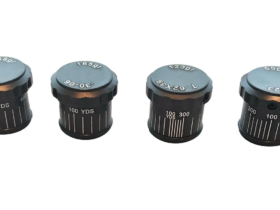Did you know that the solar industry employs thousands of people?
As we dive into getting ready for the new year, it might be time for you to take the plunge and figure out whether a residential solar system for your home is the right decision.
Examining the average residential solar system size can help you determine if investing in a solar system for your home will help you cut down on the electric bill.
You can outsource the installation to professionals, but you need to figure out whether or not it’s worth it.
Want to learn more? Then read on, and we’ll walk you through things you should know about solar system sizes.
Average Residential Solar System Size
The average residential solar system size is 4kW. Solar system sizes can vary based on the average amount of sunlight each city experiences.
For example, Albuquerque, NM, experiences an average of 5.6 hours of sunlight per day, while Tampa, FL, experiences an average of 6.5 hours of sunlight per day.
How to Determine the Size of a Solar System
Most people don’t know how to determine the size of a solar system. There are a variety of factors that will affect the size of a solar system. Keep in mind that the average residential solar system size is only an average.
Households that use more electricity during the daytime, have more sunlight hours, have efficient solar panels, and have slight shading on their solar panels will require a more extensive solar system.
How to Measure the Power of Solar
To calculate how much power you need, you’ll need to know your average daily kWh consumption. You can find this number on your most recent electricity bill.
Once you have your daily usage in kWh, multiply that number by the number of days you’d like to be covered by your solar system. It will give you your total solar system size in kilowatt-hours (kWh).
The Benefits of a Larger Solar System
For one, a more extensive system can produce more electricity, which means more savings on your electric bill.
A more extensive system may also be eligible for more government incentives, including the federal solar tax credit.
And a more comprehensive approach can significantly impact the environment by offsetting more of your home’s electricity consumption with clean, renewable solar energy.
Switching to solar is one of the best decisions you can make. It is also important to know how much solar panels save on electric bills.
Before you install a solar system, you need to take a look at the cost of solar near you to know if it is the best fit for your home.
Know About the Average Residential Solar System Size Today
It is essential to research the average residential solar system size because this will help determine if solar power is the right choice. Solar power is also an excellent option to reduce your carbon footprint and save money on the energy bill.
For more information on solar panel systems and to find out what size system is right for your home, contact a solar energy company today.
Did you find this article helpful? Check out more of our blogs!











